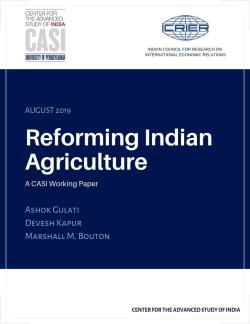Indian Police in Conflict with the Nation’s Diversity

The Indian police, which traces its origin back to 1843 and is still largely run on the British-era Indian Police Act, 1861, has been struggling to come to terms with India’s class, caste, gender, and religious diversities. The reasons for this may be due to a lack of training, sensitization, and/or inherent personnel biases according to the 2018 Status of Policing in India Report.
Exit US, Enter India? The Evolving Peace Process in Afghanistan

In the last eighteen years, the situation in Afghanistan has remained as tenuous as it had been in the three decades that preceded them. In fact, things do not look any different since 2017 when the so-called “mother-of-all-bombs” was dropped in Nangarhar to deter the extremists.
On the Other Side of Exodus: The Case of the Kashmiri Sikhs

On March 20, 2000, armed renegades cold-bloodedly murdered thirty-five Sikh men in Chitti Singhpora village in South Kashmir on the eve of US President Bill Clinton’s visit to India. A “micro-minority” in Kashmir, the violence was a first for the Sikh community, who have lived for generations alongside their Muslim counterparts in harmony in the Valley—one of the three distinct regions of Jammu & Kashmir (J&K), which has borne the major brunt of insurgency.
India’s Mission Shakti: Retrospect and Prospect

Twelve days following the Ides of March, few had any inkling that March 27, 2019 would portend a watershed in India’s strategic trajectory. Indian Prime Minister Narendra Modi made a ten minute televised address in Hindi, emphatically declaring that India has become “a global space power” after a successful anti-satellite (ASAT) missile test had just propelled the country to the ranks of the US, Russia, and China.
The Politics of Information in India

In a recently published book—The Truth About Us: The Politics of Information from Manu to Modi—I offer a narrative of how India’s social “truths” were made up over the last two centuries, an explanation for why the narrative has taken the shape it has, and its political and social consequences. Abstracted from the book, here I outline the key to the explanation—the politics of information.

